Last Wednesday afternoon, Szekler public figures finally received their state awards, which had been awarded to them by President of Hungary János Áder on the occasion of the Hungarian National Holiday of March 15. Due to the pandemic, the award ceremony could only take place last week in the Consulate General of Hungary in Csíkszereda (Miercurea Ciuc).
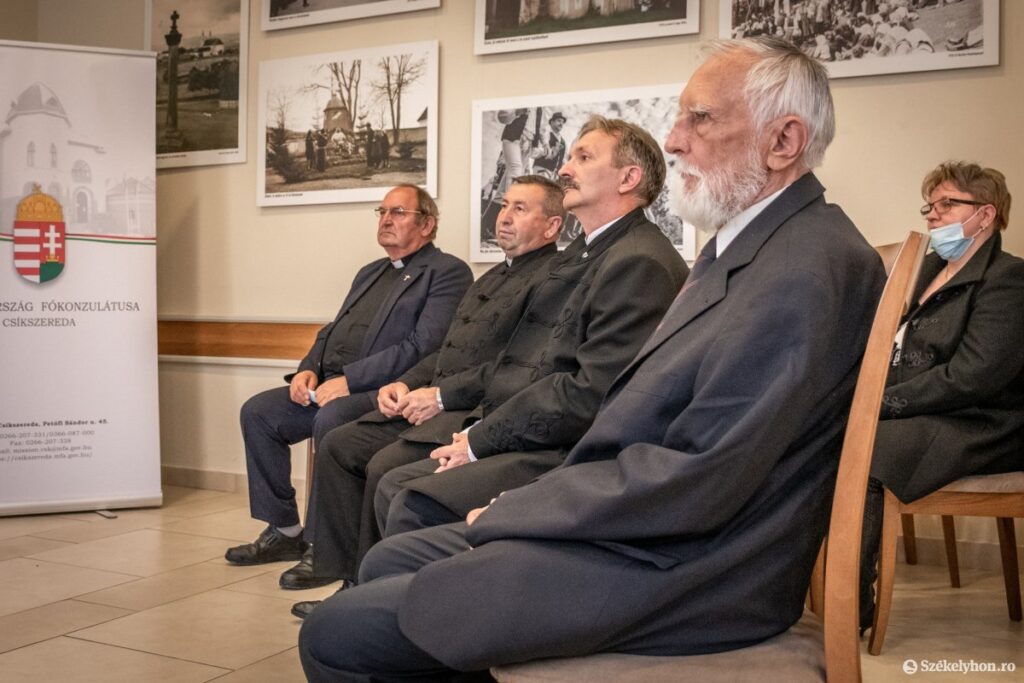
The ceremony started with the singing of the Hungarian national anthem, then Consul General László Tóth, leader of the Consulate General of Hungary in Csíkszereda, handed over the awards.
The Right Reverend Kelemen Portik-Hegyi was born in 1957 in Gyergyószentmiklós (Gheorgheni). Besides his post in Csíkszereda, he spent his priestly ministry mostly in the diaspora (Sínfalva/Cornești, Szék/Sic, Bonchida/Bonțida, Magyarszaraskend/Cornești, Bálványosváralja/Unguraș). He worked in Újszékely (Secuieni), helping 450 orphans and abandoned children who were living in state institutions. He found peace in his own parish and built up the local Catholic Church as well.
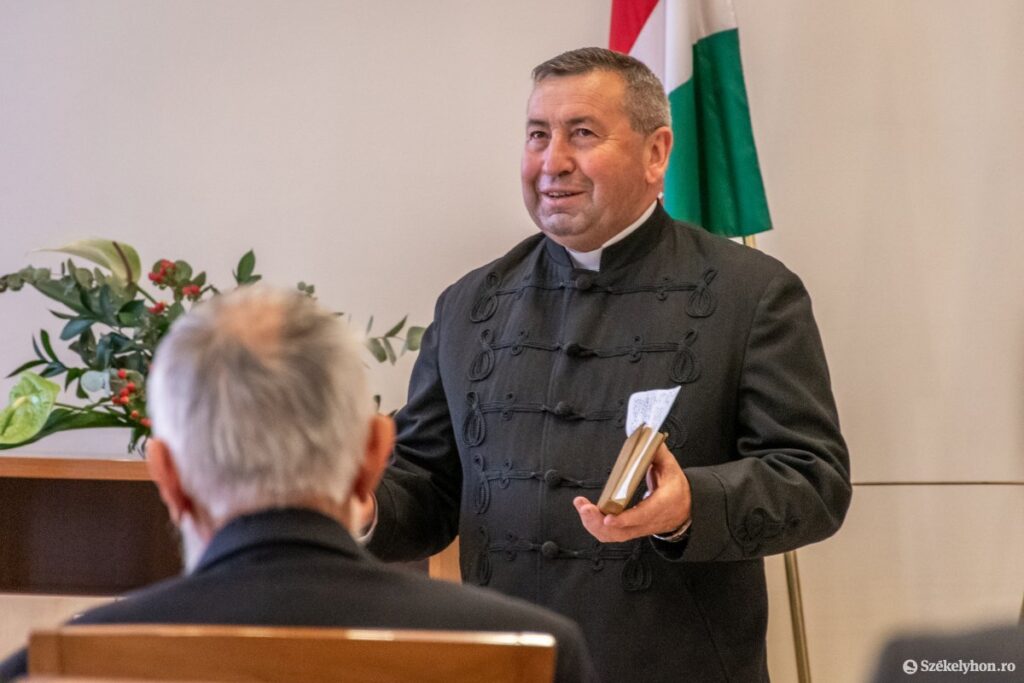
For his decades of community building and priestly ministry in the Transylvanian diaspora and Gyegyószék (part of Hargita/Harghita County), President of Hungary János Áder awarded him with the Knight of the Cross from the Order of Merit of Hungary.
In his thank-you speech, Kelemen Portik-Hegyi mentioned his parents who raised him to be an honest workingman. “I also have to say thank you to the Mother Church, as it always supported my efforts, and to the Motherland (Hungary). I always wished that not a single Hungarian should be left alone, outside of it,” he said.
Ádám Mihály Katona was also honored with the Knight of the Cross from the Order of Merit of Hungary for his vital role in the cultural and public life of the Transylvanian Hungarian community. The literary and cultural historian was born in 1935 in Dicsőszentmárton (Târnăveni), and
over the course of his life, he was caught in the crosshairs of the Romanian security service several times because of his work for the Transylvanian Hungarian community’s cultural life and future.
For example, his life at university was made increasingly difficult for initiating the erection of the Szekler gates in Szejkefürdő and the memorial of the Szekler National Assembly of 1848 in Agyagfalva (Lutița). Then, he wasn’t allowed to defend his doctoral dissertation because of his publications and organization of (Hungarian) dance house meetings; later, he could only get jobs within the education system for which he was overqualified.
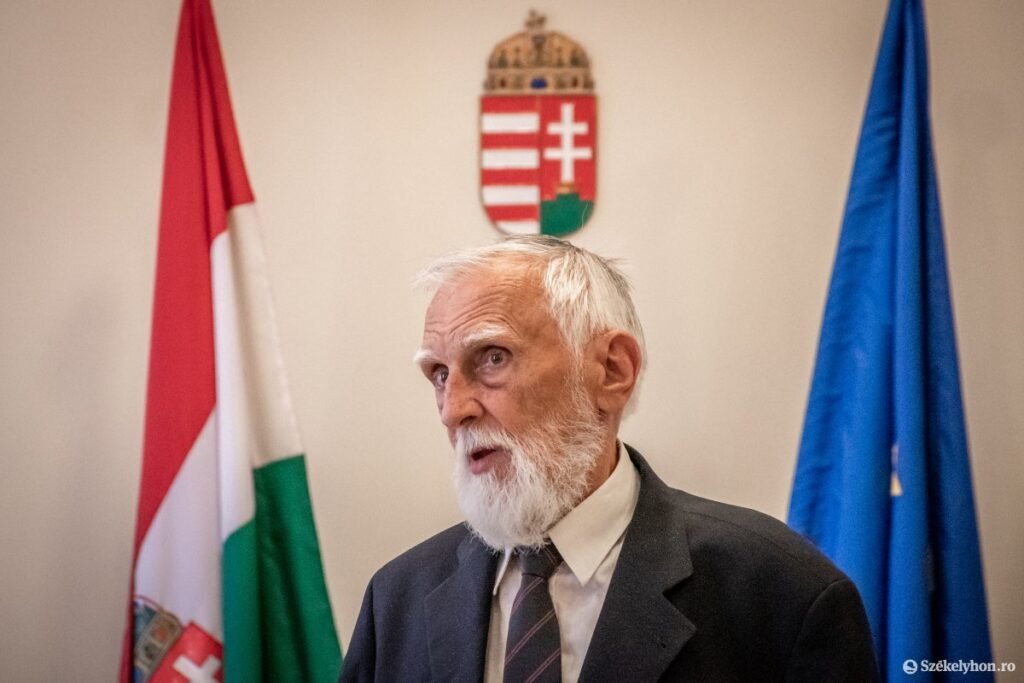
In 1991, following the political changes of 1989, Katona started to organize the Hungarian Democratic Union (Magyar Demokrata Szövetség) in the Udvarhelyszék area in Hargita County. The 85-year-old publicist pointed out that whatever happens, we must keep in mind our Hungarian identity and our national values.
“The persecutions only strengthen me and reinforce that I am fighting for good causes.”
– he said.
The Right Reverend Imre Gábor Szilveszter received the Gold Cross of Merit of Hungary for his decades of work to preserve the Csángó Hungarian community’s faith and culture in the Gyimes (Ghimeș) area. After he was ordained by Bishop Áron Márton, he started his priestly ministry in the Transylvanian diaspora.
In Sínfalva (Cornești), for example, he fulfilled the priestly duties of nine villages in the area, at the same time for ten and a half years. Then, when he was the vicar of Gyimesközéplok (Lunca de Jos), he renovated the church, enlarged the parish house, and also founded the parish in Hidegség (Valea Rece).
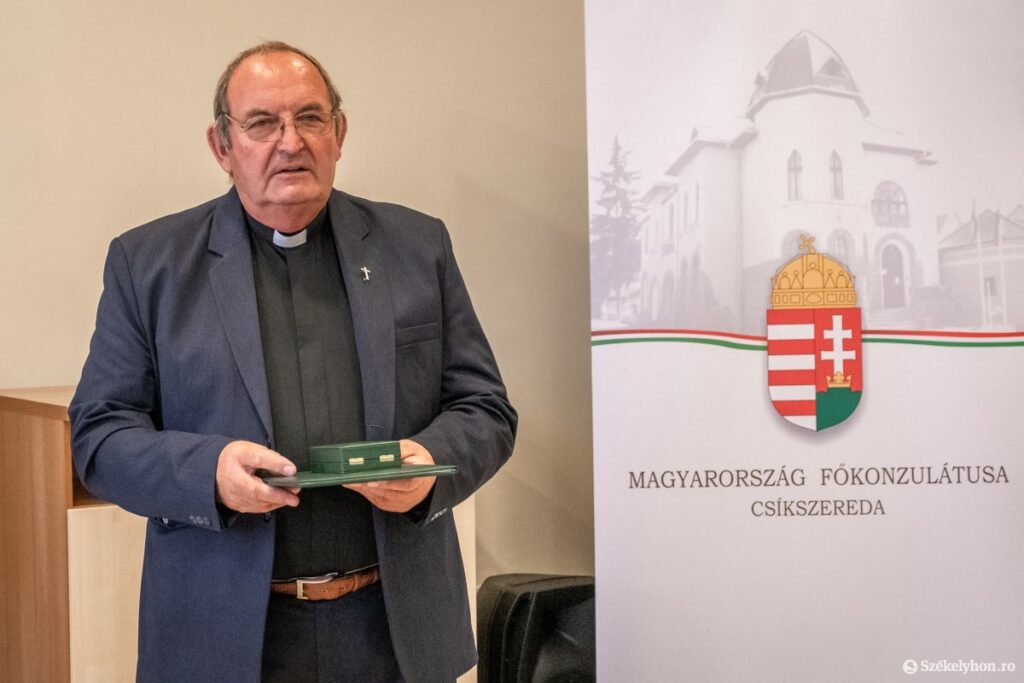
“During my service, I always kept in mind that providence had sent me to guard the places to which my fate had led me,” said the vicar.
Last but not least, Károly Czirják received the Silver Cross of Merit of Hungary award. The local historian from Maroshévíz (Toplița) was born in 1964; throughout his life, he believed that keeping the Hungarian community in his hometown alive was an important task. He researched the history of the town, and because of his intervention, the Bánffy thermal falls was declared a nature reserve.
Czirják also started the Maroshévíz Hungarian Days festival in 2012, and the story of the Zsákhegyi Cemetery in Maroshévíz came to light as a result of his work, which he pursued in a partnership with the Hungarian Ministry of Defense and the Research Institute for National Strategy.
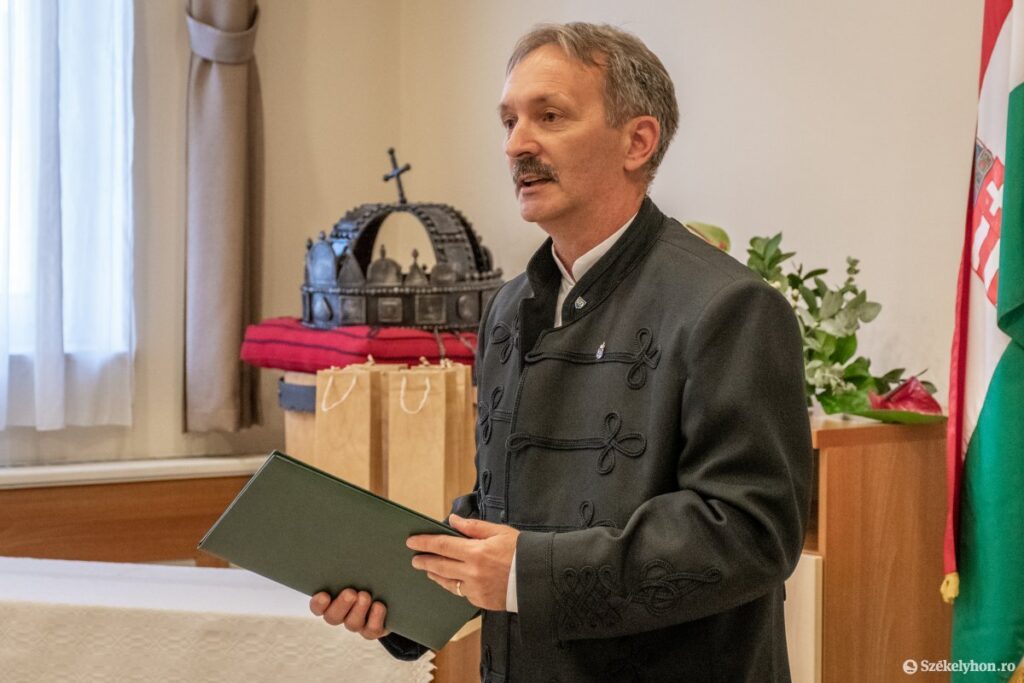
Czirják was awarded for his work to preserve the identity of Szeklerland’s Hungarian community, mainly through his research of the history of Maroshévíz, and also for looking after the oeuvre of Nándor Urmánczy (Hungarian politician and writer who lived in Maroshévíz, 1868-1940).
He emphasized that it is a reason to rejoice that the Hungarians of the Motherland consider them, Transylvanian Hungarians, also part of the Hungarian nation, and that they are helping to preserve their heritage. (szekelyhon.ro)
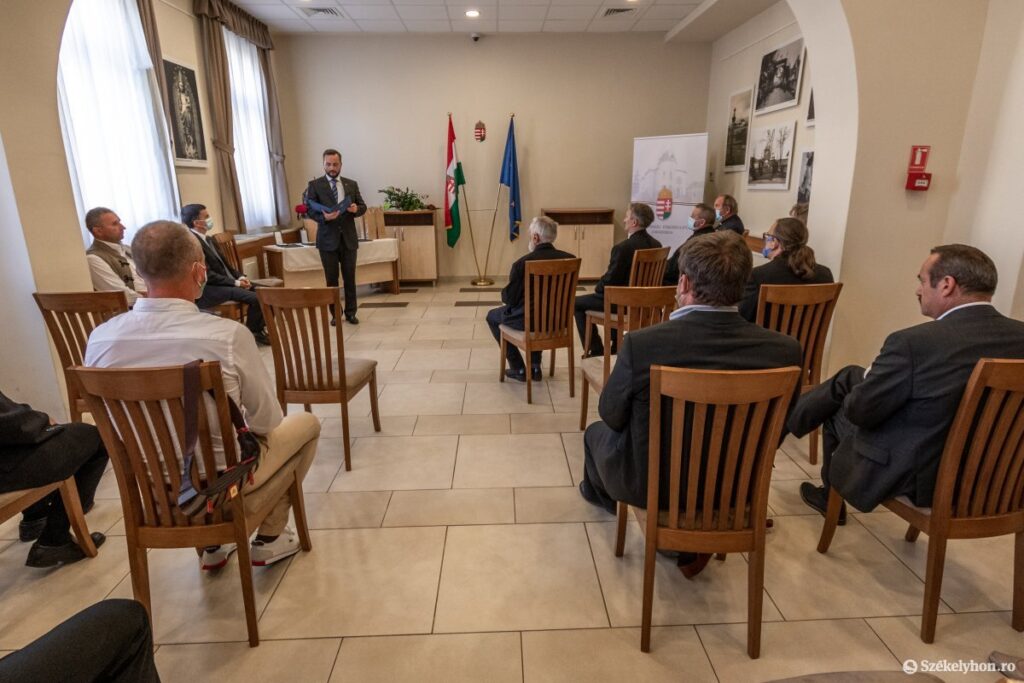
Title image (from left to right): Consul General László Tóth, Károly Czirják, Ádám Mihály Katona, the Right Reverend Imre Gábor Szilveszter and the Right Reverend Kelemen Portik-Hegyi in the Consulate General of Hungary in Csíkszereda on September 16, 2020. (Photo: Attila Pinti/szekelyhon.ro)